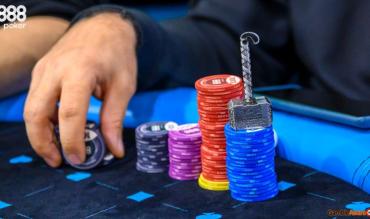Poker is a game with a few options when it comes to acting on a hand – checking, betting, raising, or folding. This article focuses on raising the three-bet (the poker term for re-raising) and how to incorporate it into a player’s game.
The three bet in poker can be an aggressive move used when playing a solid hand or used to catch players raising with weaker holdings. Many of today’s GTO (game theory optimisation) poker wizards note that three-betting should be incorporated to put opponents on the defence and to disguise and vary your own starting poker hand rankings.
Keep reading to learn all about the three-bet in poker and how you might want to mix in more of these raises into your own repertoire at the table.
What Does Three-bet Mean in Poker?
Bets in poker are numbered to show where they fall within a sequence of bets:
- One-bet – The first bet in a sequence and is usually the big blind, a forced bet that all players must call to see a flop.
- Two-bet – The bet is the first raise in a sequence.
- Three-bet – The first re-raise in a sequence.
- Four-bet – The second re-raise in a sequence
- Five-bet – The third re-raise in a sequence
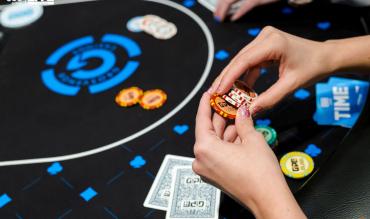
As noted, the first open-raise preflop in Hold’em and Omaha is a “two-bet” because the mandatory blind payments are the first bet of the sequence. This fact can cause some confusion amongst novice players.
It’s common for newbies to refer to a postflop two-bet (the first raise) as a “three-bet”.
Why Is a Preflop Three-bet Not the Second Bet?
A preflop three-bet may be the second bet (first raise) in the sequence rather than the third bet (second raise).
The missing link is that the big blind post is the first bet in the sequence.
Therefore, an open raise is a two-bet (the first raise in the sequence). Hence, a re-raise when facing an open raise preflop is a three-bet because it is the third bet (second raise) in the sequence.
Here’s a look at how this three-bet sequence looks:
- Big blind – one bet
- First raise – two-bet
- Second raise – three-bet
Knowing that the big blind is the first bet is key to understanding the sequence.
Moorman on Three-betting
Watch this video featuring British poker pro Chris Moorman, who knows plenty about the subject. He has two World Series of Poker bracelets, a World Poker Tour title, and more than $10 million in live tournament winnings.
Moorman offers some key strategy advice on using the three bet at the table. The goal is to use position when three-betting to put pressure on opponents. You will pick up pots along the way as they release inferior and even better hands.
Here’s a look at the key points he makes:
Punish late position raisers –
This play can induce folds from players simply looking to steal blinds with more marginal hands. “When you re-raise them, there is no way they'll want to continue with all of (their hands),” Moorman notes.
Make better hands fold –
Using the three-bet out of position may show strength and help get players with better hands to fold.
“By three-betting instead of just calling, you give yourself a chance to take down the pot,” Moorman says.
Don’t be predictable –
Mixing in some three-bets can help put other players on edge and mix up your starting range. Opponents won’t know what hands you might be holding.
“At the poker table, you never want to be easily read or too predictable,” Moorman says. “If you three-bet when you only have a big hand, that will become too apparent.”
Keep an eye on stack sizes –
This tactic will help you know which of the smaller stacks might be ideal to mix in three-bets against.
Make your three-bets larger –
This strategy gives opponents some pain in calling. Opponents will have to think long and hard about making a call when risking a bigger chunk of their stack and facing a hefty three-bet.
Moorman notes that even marginal poker combos like Q-J suited may be worth a three-bet because they can make big hands like straights and flushes even if an opponent calls.
How to Use Three-bet as Part of Your Poker Strategy
Ready for more insight on how to use a three-bet in poker? This part of the three-bet guide helps clarify and offer more insight into this concept.
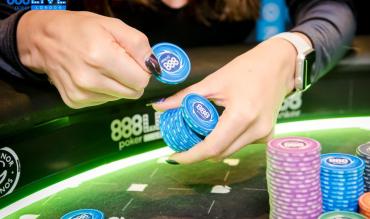
- Three-bets happen routinely, both preflop and postflop, in most poker variants.
- Postflop three-bets are less common since they are often heavily indicative of strength.
For example, a player rarely three-bet the flop in No Limit Hold’em and Pot Limit Omaha without holding a strong value hand. While some three-bets should be a bluff according to poker theory, many players only ever three-bet postflop for value.
The preflop betting rounds are a slightly different ball game since even the average recreational player has seen re-raising a preflop open (three-betting) as a bluff. While the average player 3bets way too tight of a range preflop, the line is less indicative of strength than a postflop three-bet on a dry poker board.
As a rough guide, the later the street when the three-bet occurs, the greater the strength represented.
Preflop Three-bet Strategies in Hold’em
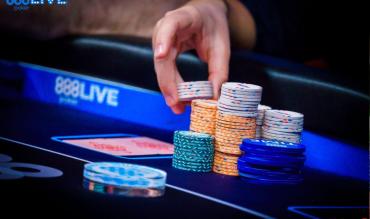
Many players advocate using polarized three-betting strategies preflop, although depolarised strategies are increasingly popular from various positions at the table.
Here’s a quick look at the meanings behind these terms and how they complement the three-bet in poker:
Polarized Three-Bet Strategy –
Implies three-betting, a selection of strong value hands, and a selection of semi-bluffs. The semi-bluffs range typically comprises speculative holdings such as suited connectors and gappers. (These cards can connect for a straight but may have gaps between them – such as J♥️8♥️ or K♠️10♠️).
They don’t have a lot of raw equity preflop but still have the potential to make big five-card holdings by the river. These types of speculative three-bets are beneficial when facing opponents who fold too frequently to preflop three-bets.
Depolarized Three-Bet Strategy –
This strategy implies three-betting a range of hands for value/thin-value but never a semi-bluffing preflop. Although the line between thin-value/semi-bluff is blurred at times, a depolarized three-betting range won’t typically involve any lower-ranked suited connectors and gappers such as 5♠️7♠️.
A depolarized three-betting strategy is advantageous when dealing with opponents who defend too frequently against three-bets.
Preflop Three-bet Strategies in Omaha
As we increase complexity into a variant by adding additional cards, describing strategies as depolarized/polarized becomes harder. The lines between the different types of approaches become blurred because players simply have so many more cards.
The general consensus regarding Omaha three-betting strategy is as follows:
- Three-bet the absolute best hands for value (i.e. AAJTss, AAKK, AKQJss, etc.). This re-raise may induce players with more marginal hands to fold.
- Three-bet a selection of speculative hands with “smooth” equity, especially rundowns such as T987ss. These three bets keep opponents off their game while picking up pots preflop. With these hands, you may also hit some solid flops that can generate even bigger postflop pots.
Poker books might describe this strategy as “polarized” (since we are three-betting a mixture of value and speculative holdings). But it could also be “depolarized” since T987ss so happens to be one of the best hands in PLO despite not having as much raw equity as holdings with bigger cards.
Hence, the terminology loses importance, but the broad view of the generally accepted strategy is as advised above.
What Size Should Our Preflop Three-bet Be?
Opinions vary on the best preflop three-bet sizing, but in most cases, it will be between three and four times the size of the initial open raise.
For example, if a player open-raises preflop to three big blinds, a typical three-bet size might be ten big blinds.
| Three-betting larger puts more pressure on opponents. They may be apt to call a min-raise or even three big blinds. But a more sizable raise sends a message that you have a solid hand, and they should think twice. Many times, opponents will think twice – and get out of the hand. |
What Types of Hands Should We Three-bet Preflop in Hold’em?
It makes sense to three-bet holdings that have the potential to make a big hand postflop. Many players make use of a linear (‘depolarized’ in poker lingo) three-bet range, which means three-betting a selection of our strongest holdings.
Three-betting with less stellar hands is also a wise approach, such as suited connectors and gappers that can make big hands on the flop. Even if they don’t, post-flop aggression could still help you take down the pot.
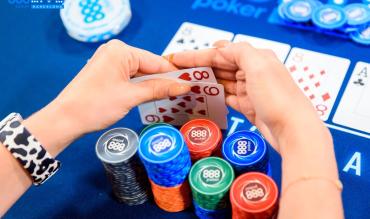
However, that doesn’t mean going wild with any two cards (or four cards in Omaha). We would only three-bet very weak holdings preflop if our opponent is folding too much to three-bets. We can exploit these players, but more experienced players may pick up on this.
What Size Should Our Flop Three-bet be in Hold’em?
A flop three-bet is usually somewhere between 2 and 2.5 times the size of the flop two-bet. Inexperienced players don’t always realise this and may sometimes make flop three-bets, which are 3 times the size of the two-bet or larger.
The error may result from the fact that a flop two-bet is usually just over 3 times the size of the initial flop bet.
Accurately sizing those three-bets can give you a better chance at maximising winnings when three-betting.
See Also
Four-bet, Five-bet, Omaha, Hold’em, Structure, Raise, Actions, Rundown
